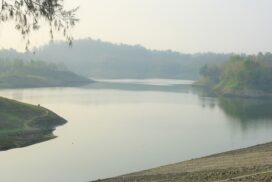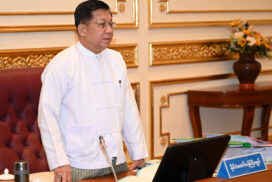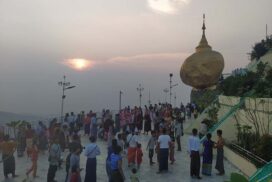The concept of green investment is gaining momentum worldwide, with a growing focus on fostering sustainability and environmental conservation in economic activities, especially within the thriving tourism industry. The green economy represents a multifaceted approach to enhancing the natural environment, promoting sustainable practices, and bolstering a nation’s economic growth. It can have a profound impact on both economic development and the preservation of a country’s natural resources.
The tourism industry, a sector encompassing hotels and various tourism services, is a key player in the green economy. It spans various domains, including accommodation, hospitality, healthcare, transportation, energy, infrastructure, municipal services, urban and rural development, and the support of micro, small, and medium-sized enterprises through investments.
An essential aspect of the green economy is its inclusivity. It provides opportunities for individuals with disabilities, empowers local ethnic communities, and engages the youth in ethnic regions. Remarkably, statistics reveal that 54 per cent of the workforce in the tourism industry comprises female employees. The green economy not only benefits entrepreneurs and small business owners but also plays a pivotal role in poverty reduction and regional development. Additionally, it contributes significantly to ecosystem preservation and the development of digital infrastructure.
According to the World Tourism Council’s report, the global tourism industry made a substantial contribution of 7.6 per cent to the world’s GDP in 2022, generating employment for 295 million people, which accounts for nine per cent of the global workforce. In Myanmar, the tourism sector directly contributed K2,448 billion, equivalent to 2.1 per cent of the Gross Domestic Product in 2022. Therefore, the imperative is for all to participate in advancing peace and stability within the nation and fostering the growth of the tourism sector.
Myanmar is bestowed with unparalleled natural beauty, from majestic mountains and winding rivers to lush forests, serene lakes, and picturesque landscapes. The country’s allure lies in its rich cultural heritage, the customs and traditions of its ethnic communities, vibrant forests, captivating waterfalls, snow-capped mountains, diverse wildlife, ecosystem conservation efforts, migratory bird sanctuaries, pristine beaches, and magnificent architectural wonders.
While the promise of a green economy is substantial, Myanmar must confront its share of challenges. Balancing the equation between opportunities and hurdles is crucial. To fully embrace the green economy, both the government and the populace must prioritize renewable energy, the development of green infrastructure, preparedness for natural disasters, resilience against unforeseen obstacles, and the prevention of destructive activities by unscrupulous individuals, all while nurturing investments and human resources. The collective effort of the nation is vital to traverse the path towards a sustainable green economy and the continued growth of the tourism industry under the guidance of the government.
Promoting a Green Economy for National Prosperity
- October 30, 2023
- 309















